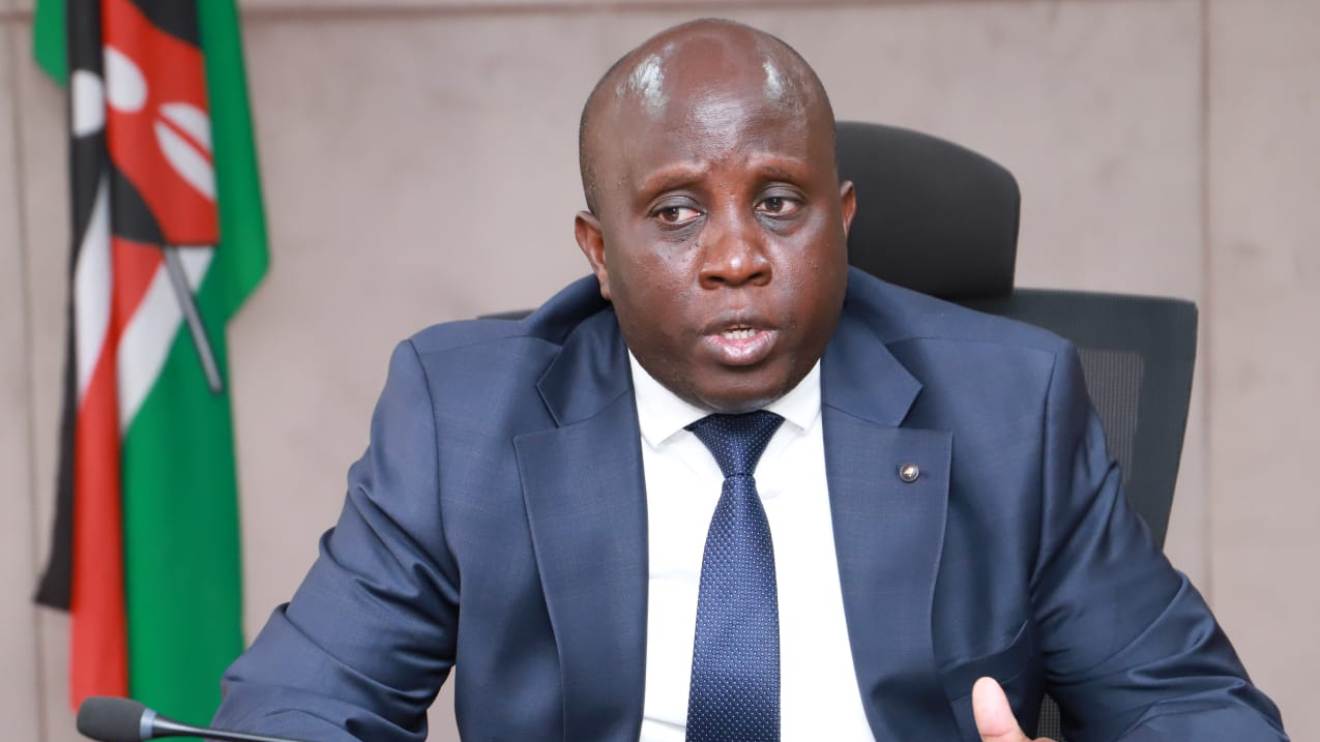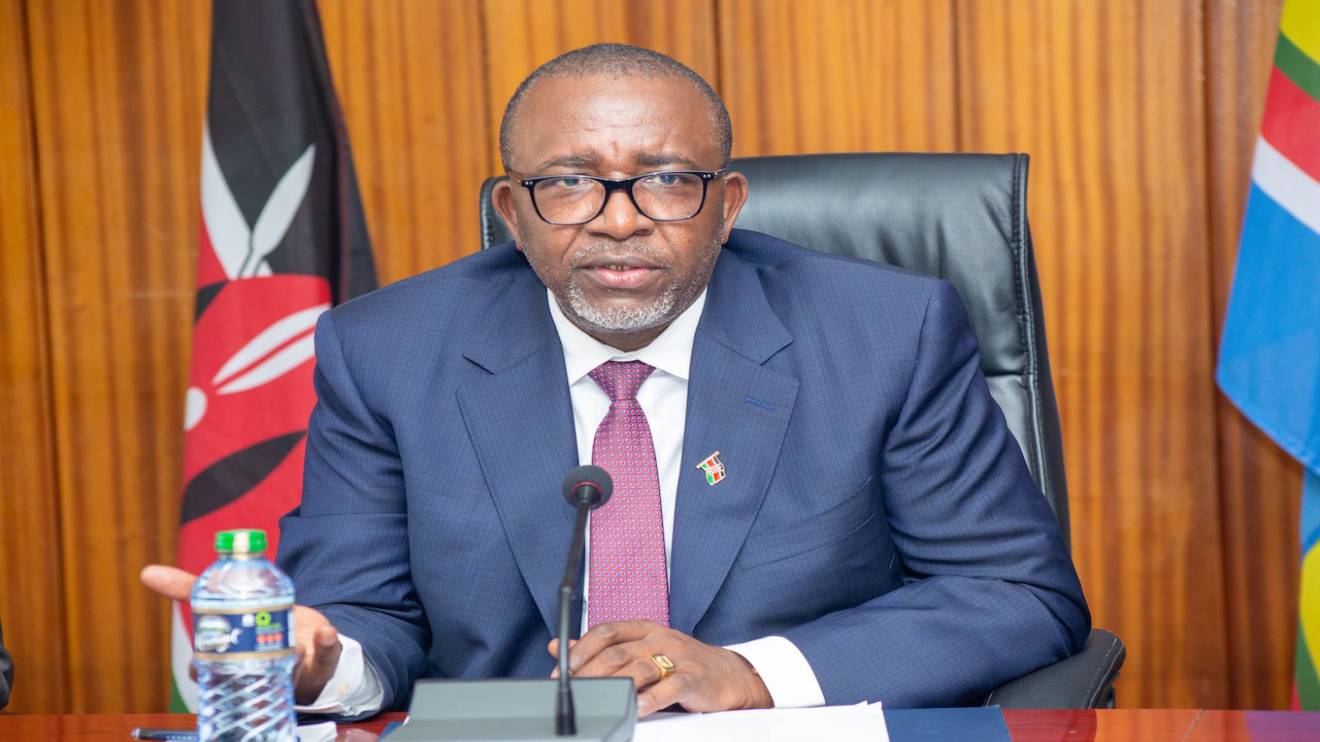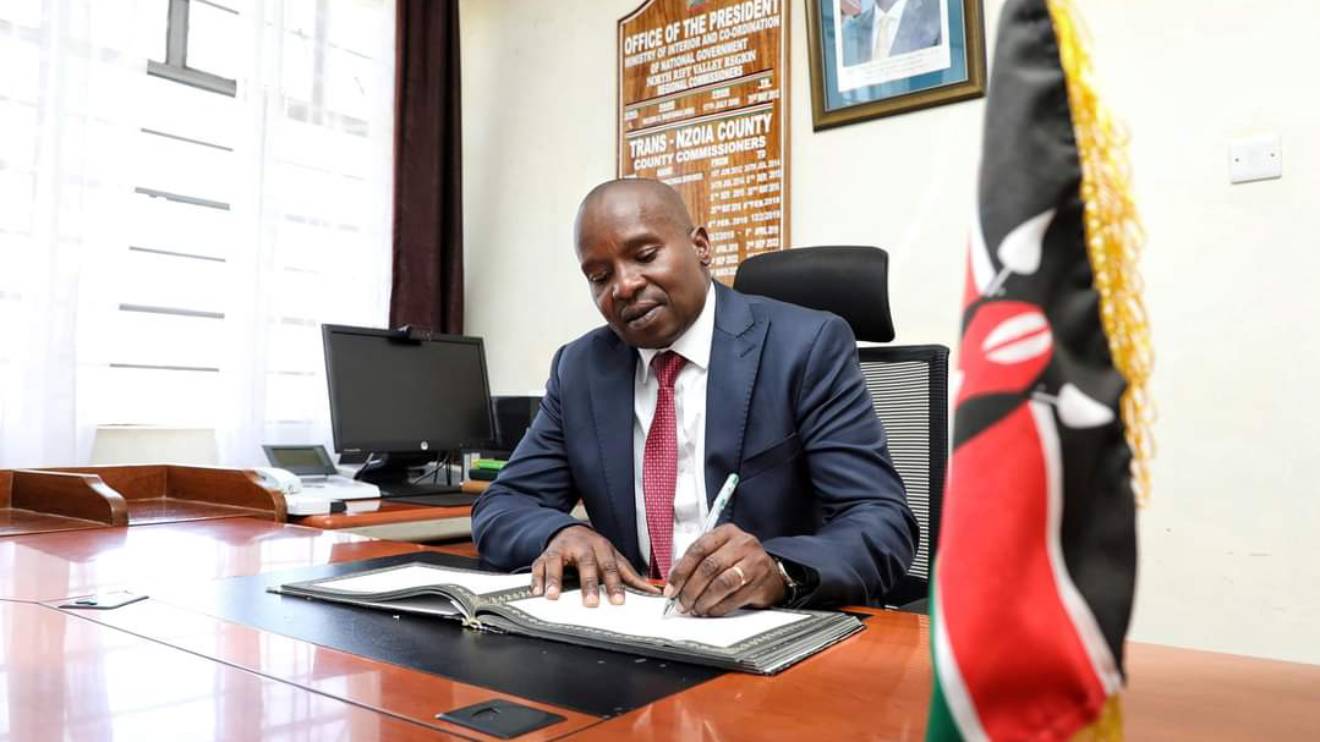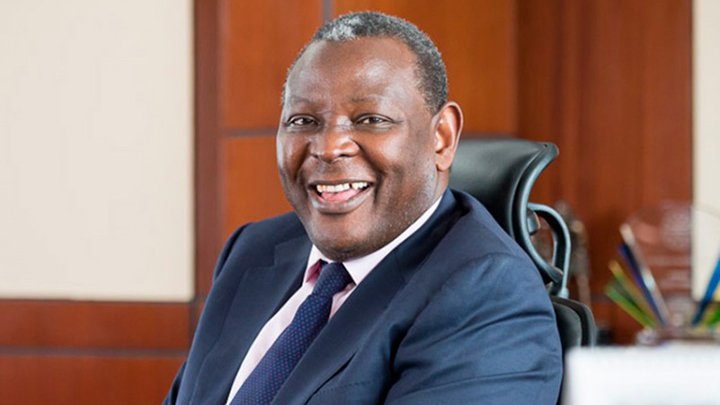The State has reiterated its dedication to advancing the nation's digital economy while emphasizing the importance of ensuring a safe and secure cyberspace.
ICT and the Digital Economy Principal Secretary (PS) John Tanui made this commitment during a recent address in his office, where he issued a Cyber Security Observance Brief.
In his remarks, PS Tanui underscored the vast opportunities presented by the digital space, which have driven Kenya's ambitious agenda to deploy more than 100,000 kilometres of digital infrastructure, digitize public services, offer digital training, and enhance the skills of the public workforce.
While expanding digital access is a top priority, PS Tanui stressed the necessity of protecting the digital network, particularly concerning data privacy and data protection.
He noted that October is recognized as Cyber Security Awareness Month, emphasizing the significance of this issue.
Read More
"As a government, we need to ensure that the right digital infrastructure, proper ICT policies, legislative frameworks, and clarity regarding our objectives are in place," PS Tanui stated.
To achieve this, the Kenyan government has enacted the Data Protection and Privacy Act, 2019, the Kenya National ICT Policy, 2019, and the Digital Master Plan 2022–2032.
Additionally, the National Computer and Cyber Crimes Coordination Committee (NC4) has been established to bolster digital security efforts.
In its pursuit of global best practices in cybersecurity, the Kenyan government is building relationships and partnering with local and international cybersecurity experts and institutions.
Collaborations with entities such as the Communications Authority, ICT Authority, Office of the Data Protection Commission, and NC4 are facilitating the exchange of expertise and threat assessments.
"We are working with various institutions and partners to ensure that we keep the sector secure," Tanui stated.
"Institutions like the Communications Authority, ICT Authority, and Office of the Data Protection Commission, within the Ministry we have the NC4 and all of them have the experts who are able to scan the space and give us guidance and warnings wherever there are any risks."
PS Tanui also called for compliance with ICT standards governing information security and urged continuous capacity building for government cybersecurity experts.
He urged citizens to remain vigilant about the information they share and to exercise caution in their digital interactions.
Furthermore, Tanui urged corporations to assess their organizational structures and ensure they have skilled cybersecurity professionals on their staff.
He emphasized that digital spaces are not without risks, and users should exercise caution when navigating them.
"The way we are careful when we walk in our street, the same way when we walk in our digital spaces we need to know that there are also risks. It is not every click that appears we should accept," Tanui stated.
Recognizing that digital skills are essential for safe engagement with cyberspace, the government is actively building capabilities within both public institutions and the private sector to identify and combat cyber threats.
In conclusion, PS Tanui highlighted the economic potential of the digital economy, noting that it offers opportunities to create jobs and wealth.
He cited the success of Kenyan youth who have upskilled themselves in digital hubs, earning substantial incomes in the process.
Tanui also encouraged young people to equip themselves with the necessary cyber skills and explore the potential of the digital space.
"Finally, I want to encourage us to know this is a great space which presents opportunities to create jobs and wealth," Tanui stated.
"You have seen our young people going to our digital hubs to upskill themselves and earn jobs, it’s very impressive to see persons who have just cleared their colleges or even students earn from 200 to even 2, 000 US Dollars a month in this digital platforms."
Cybersecurity remains a global concern, impacting governments, the private sector, the tech community, academia, and non-governmental actors.
Recent data from the Hiscox cyber readiness report for 2023 reveals a steady increase in cyberattacks, particularly against smaller businesses, underscoring the need for enhanced cybersecurity measures worldwide.











